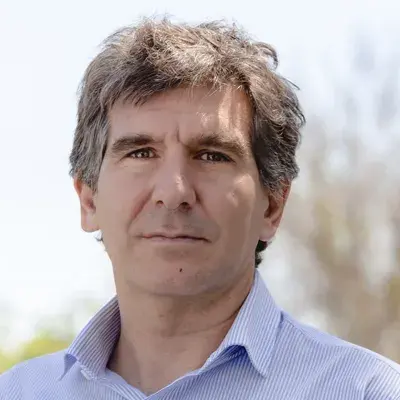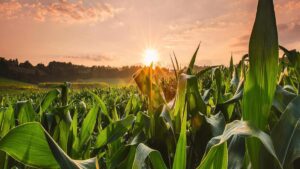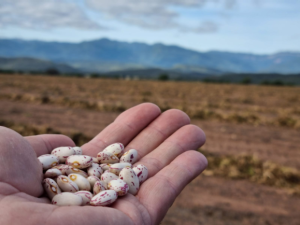In this occasion, we interviewed Pablo Tamburo, General Manager of Argensun S.A. Pablo has a degree in Administration and Finance, and handles the firm’s business strategy alongside the company’s management. Argensun is a professional, family-run business with more than 32 years of experience in the market. The company is a leader in the sunflower trading business.
Argensun developed several markets and today has one of the most significant shares of Argentina’s confection sunflower seed business to the Middle East, North Africa, Russia, China, the U.S., Europe, and other markets. In sunflower seed, they have the full supply chain. They supply more than 90% of the sunflower seed grown in Argentina. Further, they supply seed to many growers that regularly partner with them.
Argensun made investments in genetics in order to find the way to compete with a better quality kernel, especially after China released improved genetics and forced competitors, including Argensun, to do the same.
Although when it comes to sunflower seed, Argensun is a market leader, exporting more than 25,000 mt per year and having a 90% share of the Argentine market, the company also exports other products, including popcorn, chia, and sesame seeds, pulses, and prunes. Their total annual export volume is approximately 60,000 mt. The company has three industrial facilities, two of which are located in Luján, in the province of Buenos Aires, and the third in the province of Mendoza.
With a work team of approximately 200 people and the biggest market share both internationally and domestically, Argensun is a very good source to provide an overview of Argentina’s sunflower crop.
JC: How is the 2021 sunflower harvest coming along?
PT: The 2021 crop was good, especially in terms of yields. There were some rains that caused harvest delays, but nothing significant. Average yields were in the 2300-2500 kg per hectare range, about 10%-15% above a normal crop in Argentina. The kernels have good size and filled properly.
JC: What has the weather been like and what impact did it have on Argentina’s 2021 sunflower crop?
PT: The weather conditions were good, except for the rains at harvest. This caused some harvest delays, and in some cases, we had to dry the kernels. Other than that, everything went smoothly, and conditions were normal.
JC: When did the harvest begin and when do you expect it to end? Was it within the normal window?
PT: The spring crop is the most important for confection sunflower and starts in the month of February. The harvest was normal. The spring crop represents approximately 90% of the crop.
JC: How are the yields this season and how do they compare with the previous crop?
PT: As I mentioned, yields were above normal this year, around 2500 kg per hectare compared to the 2000–2200 kg per hectare we usually get.
JC: How much sunflower production do you expect for 2021? And how does it compare to an average crop?
PT: This season, we have total production of 90,000–100,000 mt. Normally, Argentina harvests 70,000–80,000 mt. The export balance is 45,000–50,000 mt. The rest you can use for birdfeed, as oilseed and other uses. Probably some part of the crop will remain as carry-in for speculation, maybe some 3000–5000 mt.
JC: How much carryover is there from 2019-2020?
PT: The carry-in from the 2019-2020 crop is practically zero because of all the snow that affected the U.S. the previous season. Last year, the U.S., which is normally one of the major exporters of sunflower seeds in the world, was importing sunflower instead of exporting. So there was a lot of demand last year, and that is the reason we are starting the new crop year with practically no carryover.
JC: How much is consumed domestically in Argentina?
PT: Domestic consumption in Argentina is approximately 2500-3000 mt; Argensun has about a 90% share of the domestic market. We are working hard to promote sunflower consumption. Pipas is a healthy product, and we expect consumption will increase both domestically and internationally because of the nutritional benefits. We sell approximately 300,000–325,000 small bags of Pipas per day and we have a presence in 9 of 10 stores here. It takes constant effort to promote awareness of the health benefits of this product compared to the less healthy snacks that are available.
JC: What are the main markets for sunflower seeds and the best markets for 2021-22?
PT: Our main markets are northern Africa, the Middle East, Spain, Germany, Italy, Mexico, Brazil, and Peru. But we are constantly working to develop other markets as well.
JC: What impact has COVID-19 had on the sunflower market?
PT: We see an increase in sunflower seed demand, and the market remains firm. It is difficult for us to confirm that this is because of COVID-19, but what we know for sure is that the market remains firm and demand is stable. The crop is coming along nicely, with approximately 90,000-100,000 mt of production and 45,000-50,000 mt of export balance. The quality is good, especially in terms of the kernel fill.
JC: Is there something else you would like to add?
PT: We want to give special thanks and appreciation to the Argensun team. A company is, in essence, its work team. We put constant effort into delivering professional, reliable, and quality service and products. Every day, we work hard to show the world what we can do in Argentina. That is our main motivation, and we work to achieve a quality product that is currently present in the supermarkets of countries with the strictest standards, including New Zealand, Germany, Spain, and others that demand premium products. To enter those markets, you need technology and human capital, and for that reason, we invest in genetics and human resources.
Our employees are motivated and have a sense of belonging to our team. Our people are our most important asset. We consider Argensun as a bridge between the farmer and our customers. We are the ones that put the final product on the table.
We strive for excellence in our products in order to show what we can achieve with hard work, enthusiasm, effort, consistency, spirit, and teamwork.
JC: Pablo, thanks for your time. We hope this article helps to show at least part of what you do. We are grateful for the valuable and timely information, which is key for our customers.
PB: Thank you, Juan. We appreciate the effort you’ve made to show our work and the work of other Argentine firms to the world.
The main production areas are:
Processing Facility of Argensun S.A




Add comment